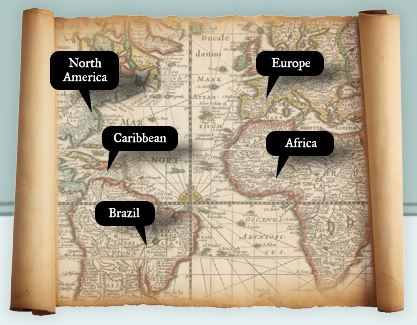
Now in its seventh year, the website “Voyages: Trans-Atlantic Slave Trade Database” is one of the most sought-after resources among humanities scholars and researchers, registering at least 1,000 visitors a day.
The database is fueled by decades of research on four continents and documents 36,000 voyages in which more than 10 million Africans were trafficked to the Americas.
Now, with the help of a $220,000 grant from the National Endowment for the Humanities, a missing element of the slave trade will be added to the database.
While research on the Black slave trade has focused on Trans-Atlantic trafficking, less has been known about intra-American slave trading. However, a recent book by University of California, Santa Cruz associate professor of history Gregory O’Malley helps shine light on the historical phenomenon, and his research will be incorporated into the “Voyages” database.
“I went through all of the port records from all of the British colonies in the Americas, in both the Caribbean and North American mainland, and I logged every shipment that carried enslaved people. It took a year and a half, and I found more than 7,600 shipments carrying hundreds of thousands of people,” said O’Malley of the research documented in his award-winning book, “Final Passages: The Intercolonial Slave Trade of British America, 1619-1807.”
Another part of the grant would go to shed light on other little-studied aspects of the forced immigration of Africans to the Americas, including the movement of slaves from Brazil to other South American countries.
O’Malley said his research and the broader “Voyages” database both help highlight the ubiquitous nature of the African slave trade and its significant influence on the society and economy of the Atlantic region—even to this modern day.
“I think what drew me to the colonial period was an interest in race relations as a core dilemma of American society,” O’Malley observed. “A lot of the foundations for that were located in the colonial period.
“We are living in a country where Black lives are often treated as if they didn’t matter, and it’s built on this trade of slaves,” he added. “This disregard for their welfare and well being is really important background for modern race relations. I think it shows we have a long history of devaluing Black lives in American society.”


